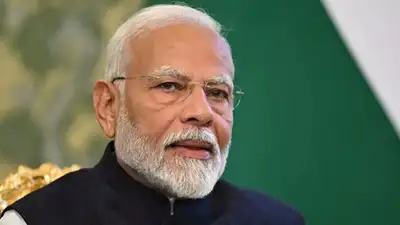New Delhi, June 10: In response to a recent increase in COVID-19 cases across several Indian states, the central government has mandated RT-PCR testing for all Union Ministers and senior officials before any in-person meeting with Prime Minister Narendra Modi. This precautionary step comes amid concerns about the spread of emerging Omicron subvariants such as JN.1 and KP.2, which are believed to be more contagious.
Government sources revealed that this directive has been issued to minimize any potential health risks during high-level meetings. The latest subvariants, though considered to cause milder symptoms, are noted for their ability to infect individuals with previous immunity from past infections or vaccinations. Officials have confirmed that the measure is temporary but crucial in safeguarding the top leadership from the rising health threat.
While India is not witnessing a nationwide surge at the scale seen during previous waves, major urban centers like Delhi, Mumbai, and Bengaluru have reported a noticeable uptick in daily COVID-19 cases and a mild increase in respiratory illness-related hospital visits. In light of this, the Ministry of Health and Family Welfare (MoHFW) has urged both central and state authorities to remain vigilant and prepared.
“All ministers are advised to undertake an RT-PCR test before attending any scheduled meetings with the Prime Minister. This step is being implemented as a preventive health measure,” a senior official from the Prime Minister’s Office stated.
The Indian Council of Medical Research (ICMR) has also emphasized the importance of continued COVID-appropriate behavior, especially in enclosed or crowded public spaces. Citizens are encouraged to wear masks, maintain proper hand hygiene, and seek testing if they experience symptoms such as fever, cough, or sore throat.
State health departments have been asked to increase genome sequencing of positive samples in coordination with the Indian SARS-CoV-2 Genomics Consortium (INSACOG) to monitor any mutations in circulating variants. Hospitals have been advised to review their preparedness levels, including the availability of oxygen supplies, ICU beds, and essential medications.
Although no immediate restrictions or lockdowns are being considered, the government has advised caution regarding large gatherings, particularly in districts with high test positivity rates. Special care is being recommended for elderly citizens and those with underlying health conditions, who remain most vulnerable to severe outcomes.
This latest development underlines the government’s proactive approach to controlling the virus while ensuring the continued functioning of key administrative processes. Authorities are closely monitoring the evolving situation and may introduce additional measures depending on future case trends.



